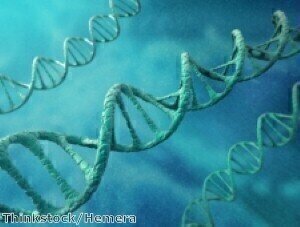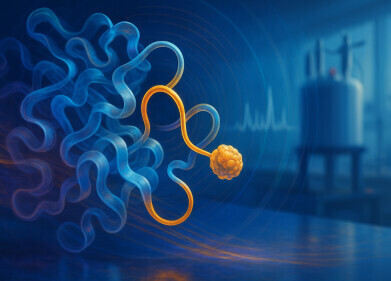Microscopy & microtechniques
New lab test examines how DNA modifications lead to disruption in protein synthesis.
Aug 22 2012
Chemists have developed a new lab test which examines how DNA modifications lead to aberrant transcription and ultimately a disruption in protein synthesis.
Transcription is when genetic information from DNA is copied to messenger RNA for protein production. Anticancer drugs and other environmental chemicals have been found to occasionally interrupt this flow of genetic information by causing modifications in DNA.
Now, researchers at the University of California have developed a new laboratory test that can examine how such DNA modifications lead to aberrant transcription and ultimately a disruption in protein synthesis.
The method, named "competitive transcription and adduct bypass" or CTAB, is hoped to develop our understanding of how DNA damage arising from anticancer drugs and environmental chemicals leads to cancer development.
Yinsheng Wang, a professor of chemistry, whose lab led the research, said: "Aberrant transcription induced by DNA modifications has been proposed as one of the principal inducers of cancer and many other human diseases.
"CTAB can help us quantitatively determine how a DNA modification diminishes the rate and fidelity of transcription in cells. These are useful to know because they affect how accurately protein is synthesized. In other words, CTAB allows us to assess how DNA damage ultimately impedes protein synthesis, how it induces mutant proteins."
The CTAB method is capable of also examining the proteins involved in repairing the DNA, and one of the aims of the researchers is to understand how DNA damage is repaired. Breakthroughs in this area could lead to the development of new and more effective drugs for cancer treatment.
But the immediate goals will be to use CTAB to investigate how other types of DNA modifications compromise transcription and how they are repaired in human cells. The ultimate goal, however, may take several more years to develop.
The study results appeared online in Nature Chemical Biology.
Posted by Ben Evans.
Digital Edition
Lab Asia Dec 2025
December 2025
Chromatography Articles- Cutting-edge sample preparation tools help laboratories to stay ahead of the curveMass Spectrometry & Spectroscopy Articles- Unlocking the complexity of metabolomics: Pushi...
View all digital editions
Events
Jan 21 2026 Tokyo, Japan
Jan 28 2026 Tokyo, Japan
Jan 29 2026 New Delhi, India
Feb 07 2026 Boston, MA, USA
Asia Pharma Expo/Asia Lab Expo
Feb 12 2026 Dhaka, Bangladesh

.jpg)
-(2).jpg)
















